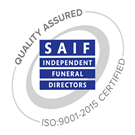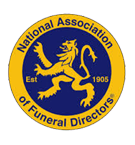Coroner Procedure
The procedure following a death can vary depending on the circumstances. In many cases the Doctor of the Deceased will issue a Medical Cause of Death Certificate but if he or she is unsure of the actual cause of death, the Coroner may have to be informed before Registration can take place.
(If the Doctor is able to issue a Medical Certificate, the next two sections do not apply. You can go straight to REGISTRATION)
HM Coroner Procedure
Should the Doctor be unsure of the cause of death he will be unable to issue a Medical Cause of Death Certificate, The Formal Notice will state that the death has been referred to the Coroner and Registration may be delayed. This procedure could be necessary in the case of any sudden or unexpected death. The Coroner or his Officer will then make an examination and you will be contacted.
Ascertaining the exact cause of death may be important for a number of reasons and the Coroner may choose to conduct a post-mortem examination.
If the cause of death is found to be from natural causes the Coroner's office will issue a form, the equivalent of a Medical Certificate and you will be informed when to contact the Registrar's Office. If you choose Cremation, the Coroner will also provide the relevant form.
This procedure MAY NOT delay the funeral service.
The Coroner Holds an 'Inquest'
Should the Coroner decide that an Inquest is necessary for the public interest and those of the relatives, he will arrange it. This may be helpful, for example, with claims for compensation (e.g. Industrial Illness, Accidental Death) Contact the Coroner's office for help and advice.
The Coroner can supply you with a letter confirming death (known as the Interim Certificate), to help you claim DWP benefits, and finally the required form for Burial or Cremation. A Certificate After Inquest will be sent to the Registrar for registration purposes. You WILL NOT need to attend the Registrar's Office to register the death.




